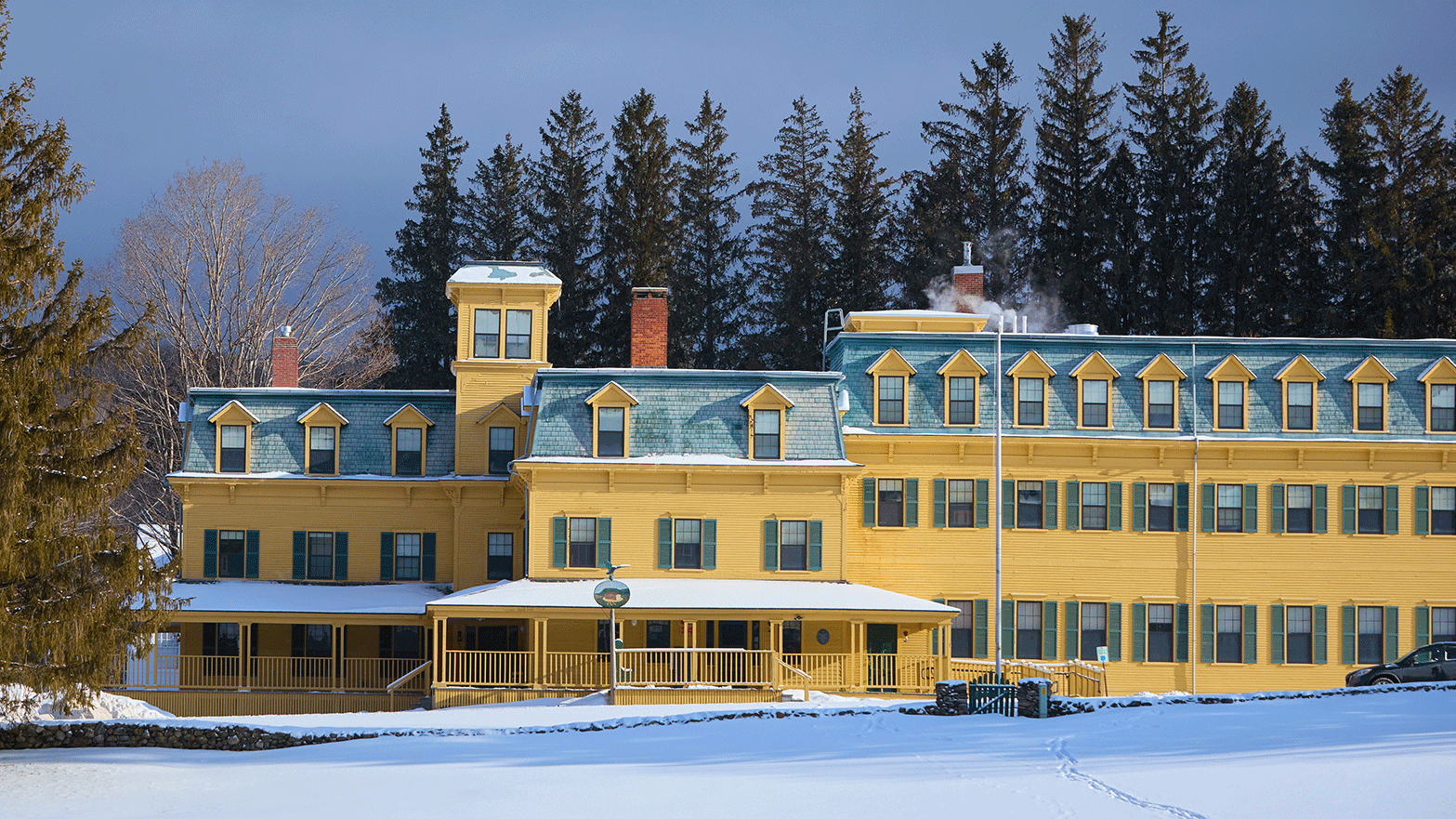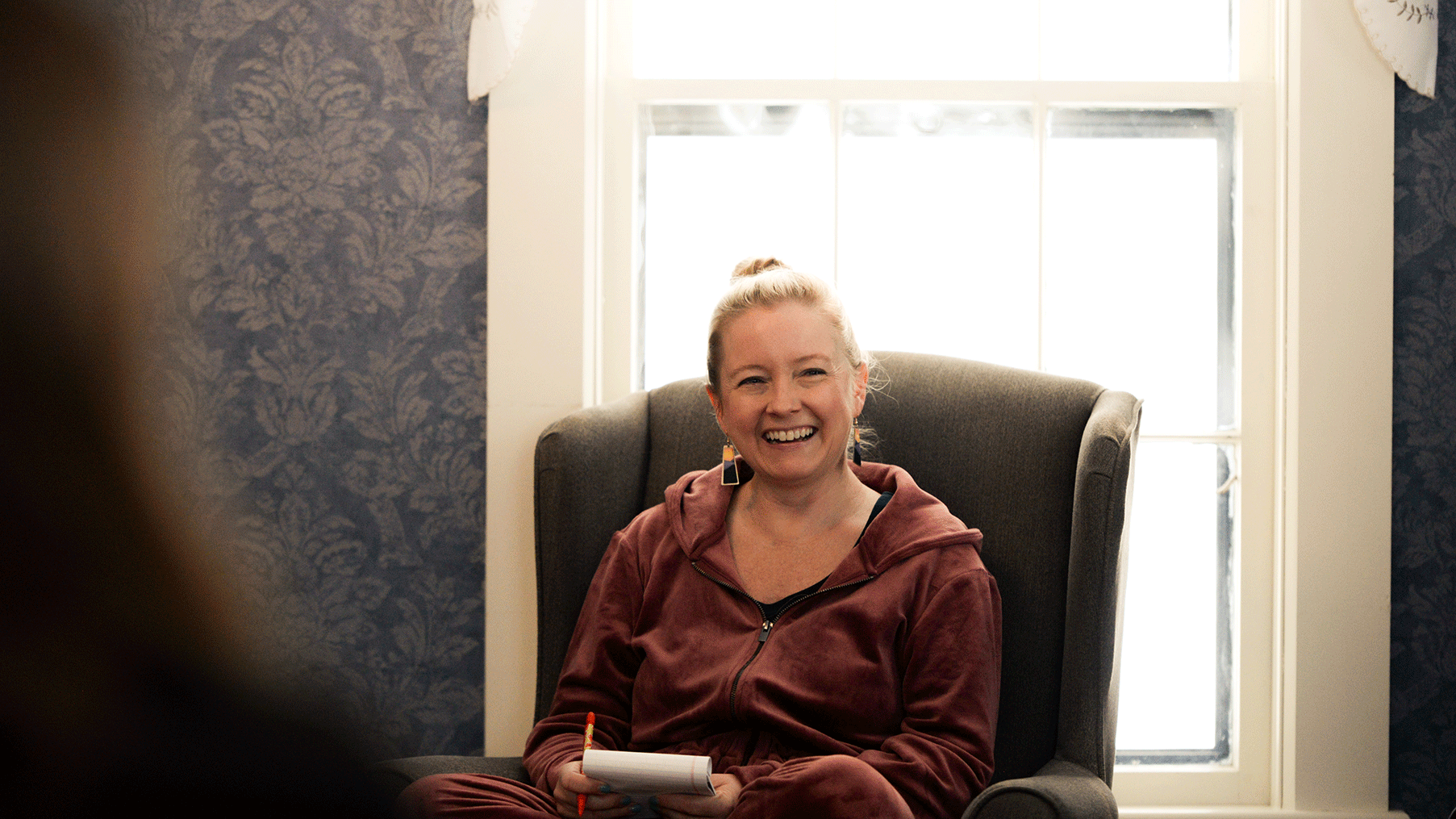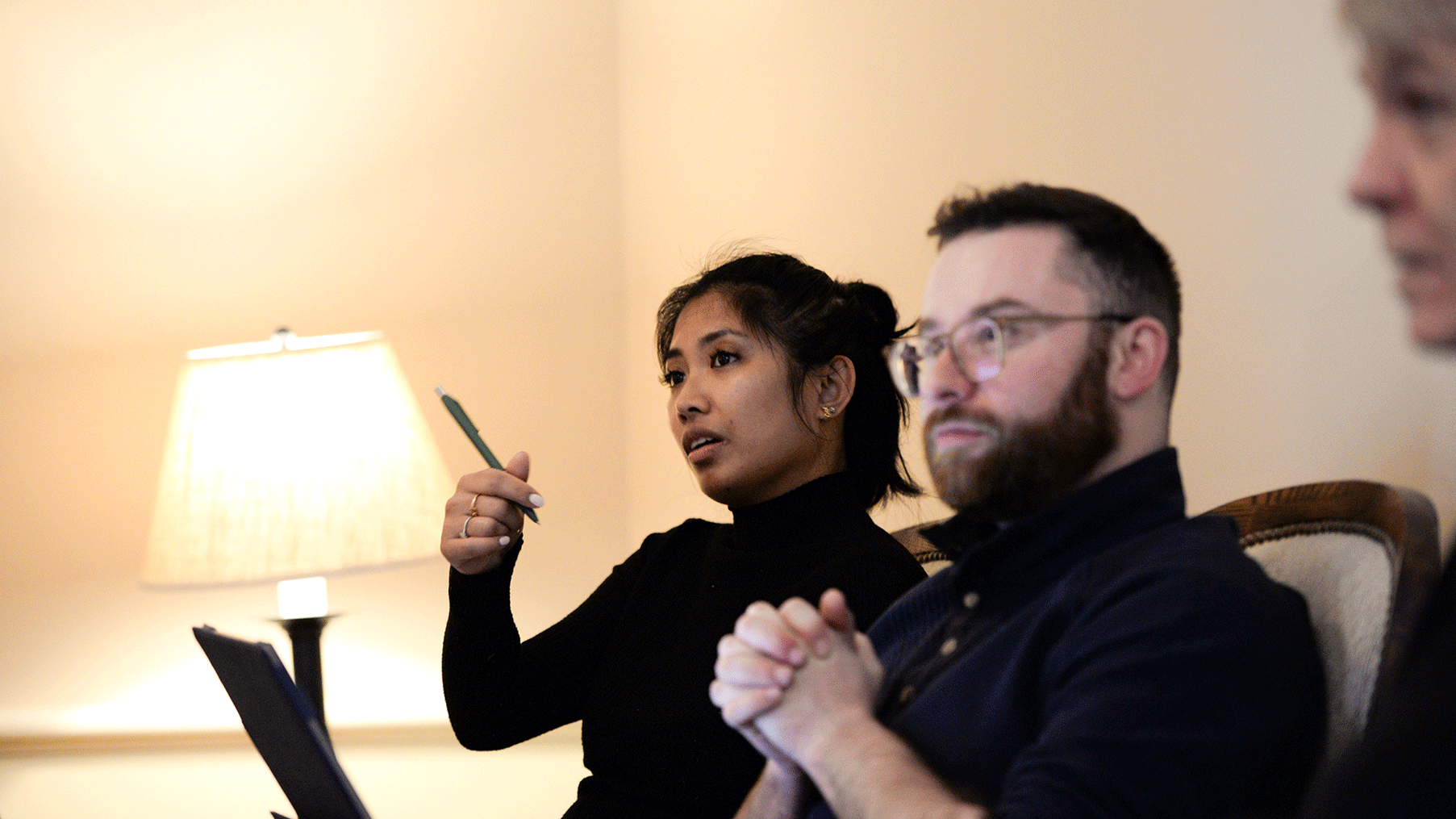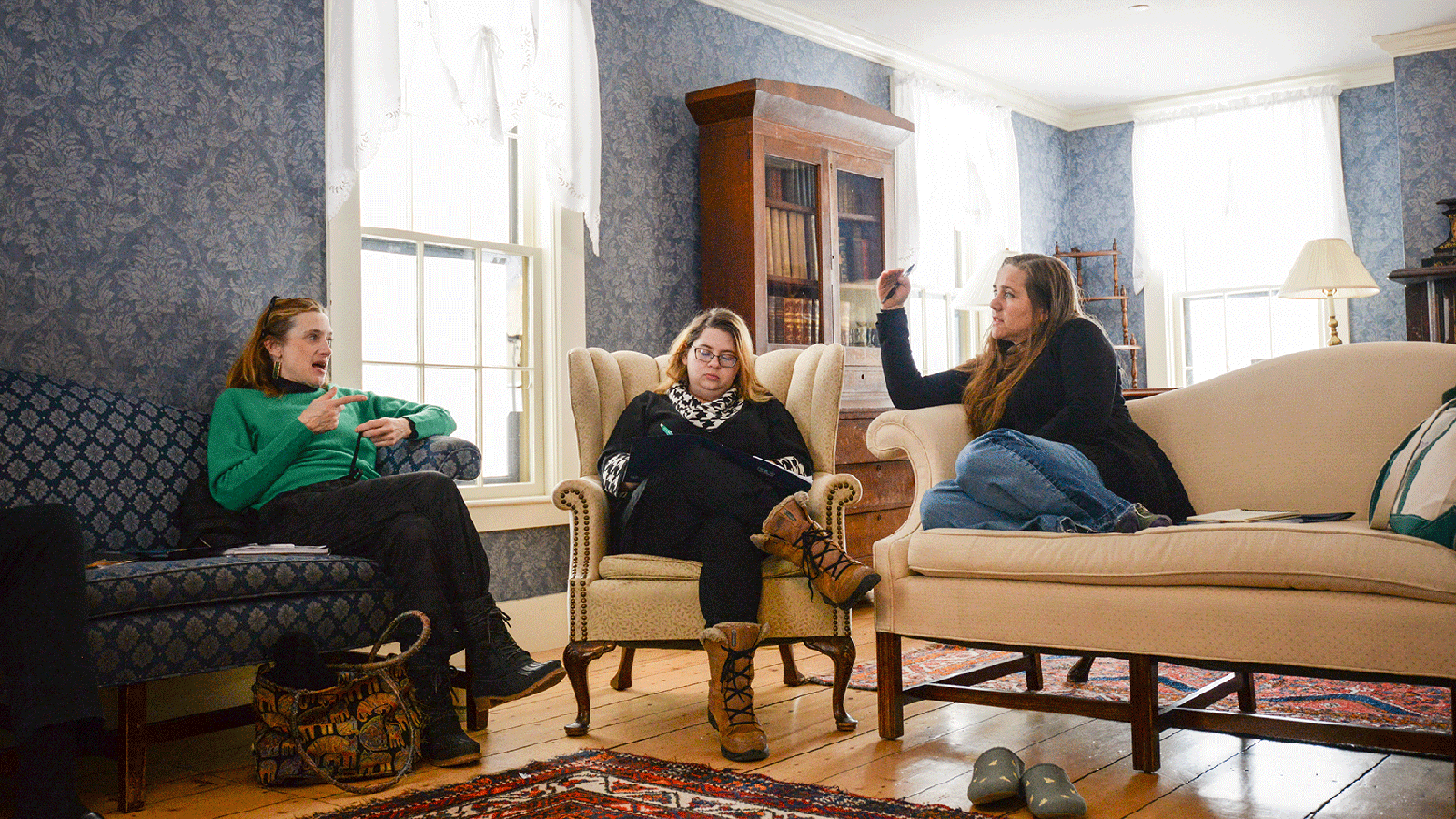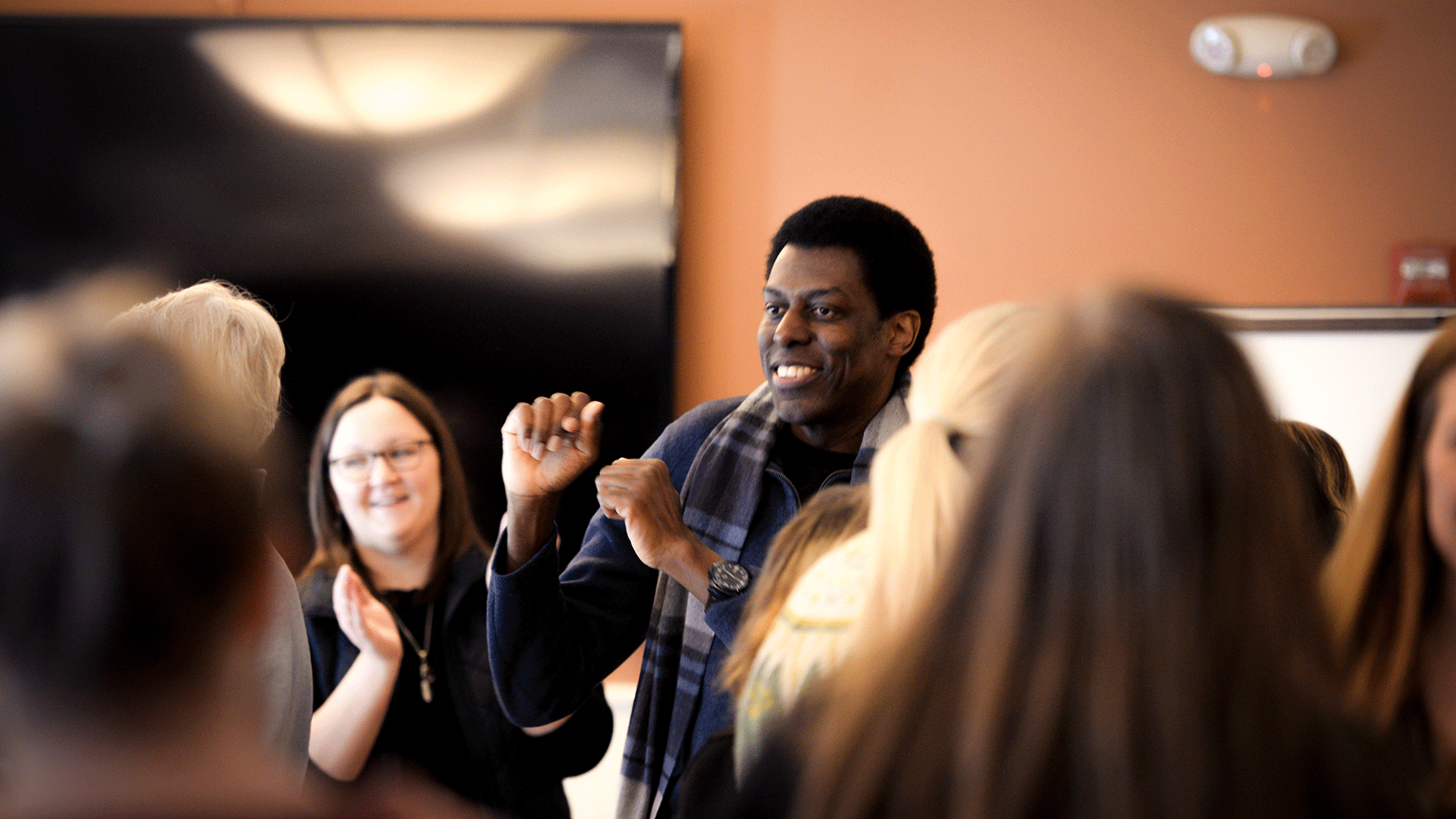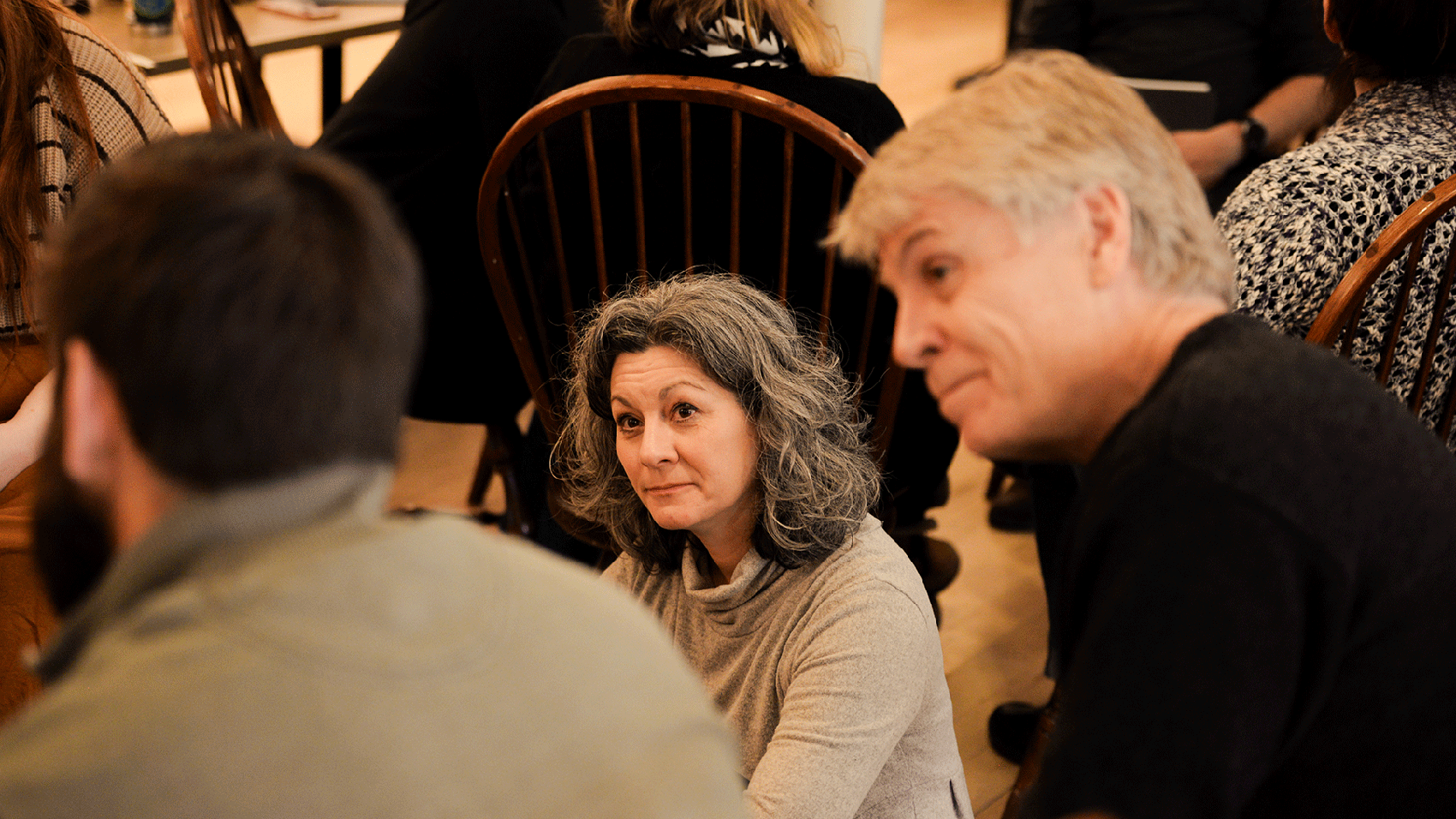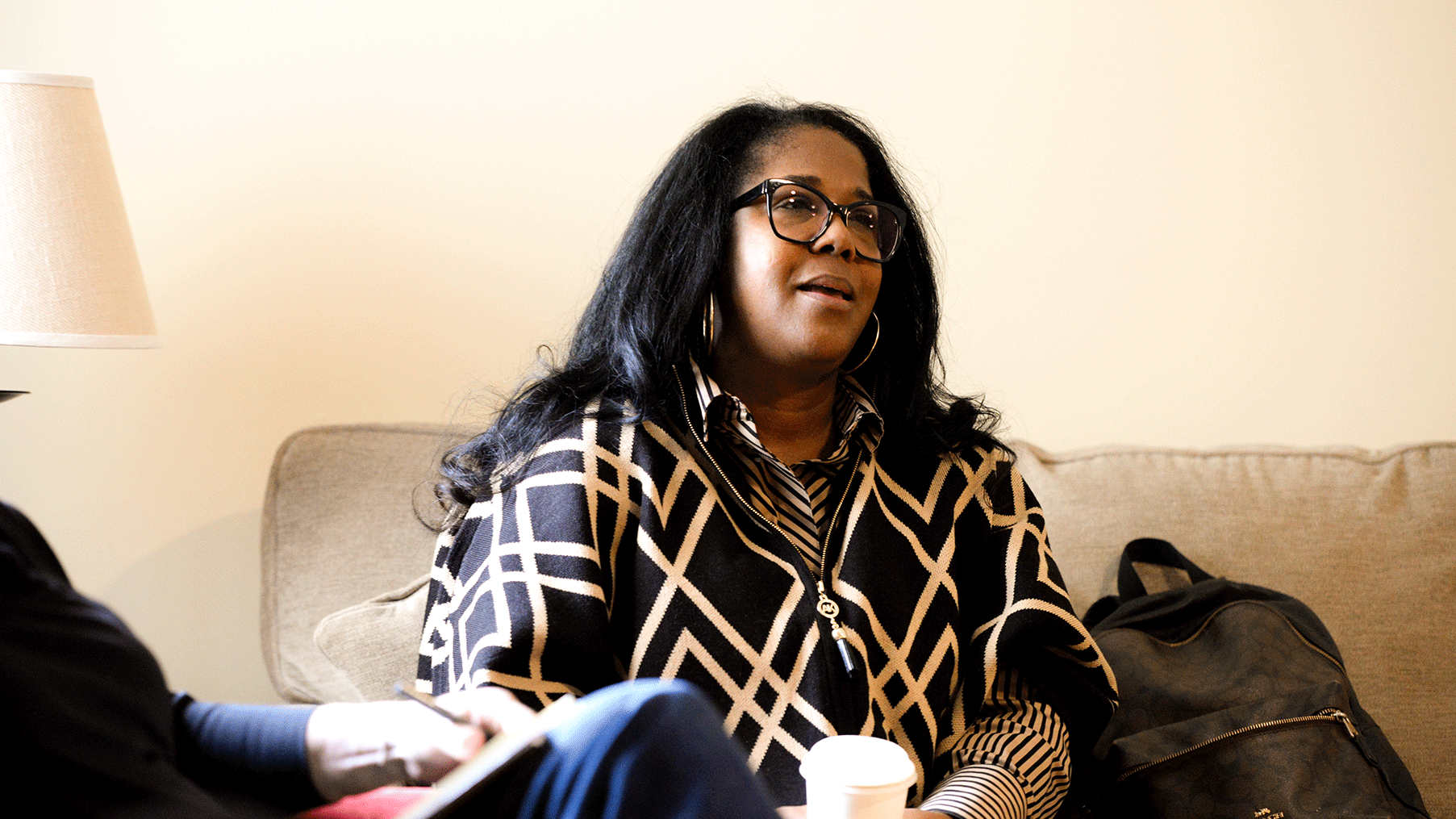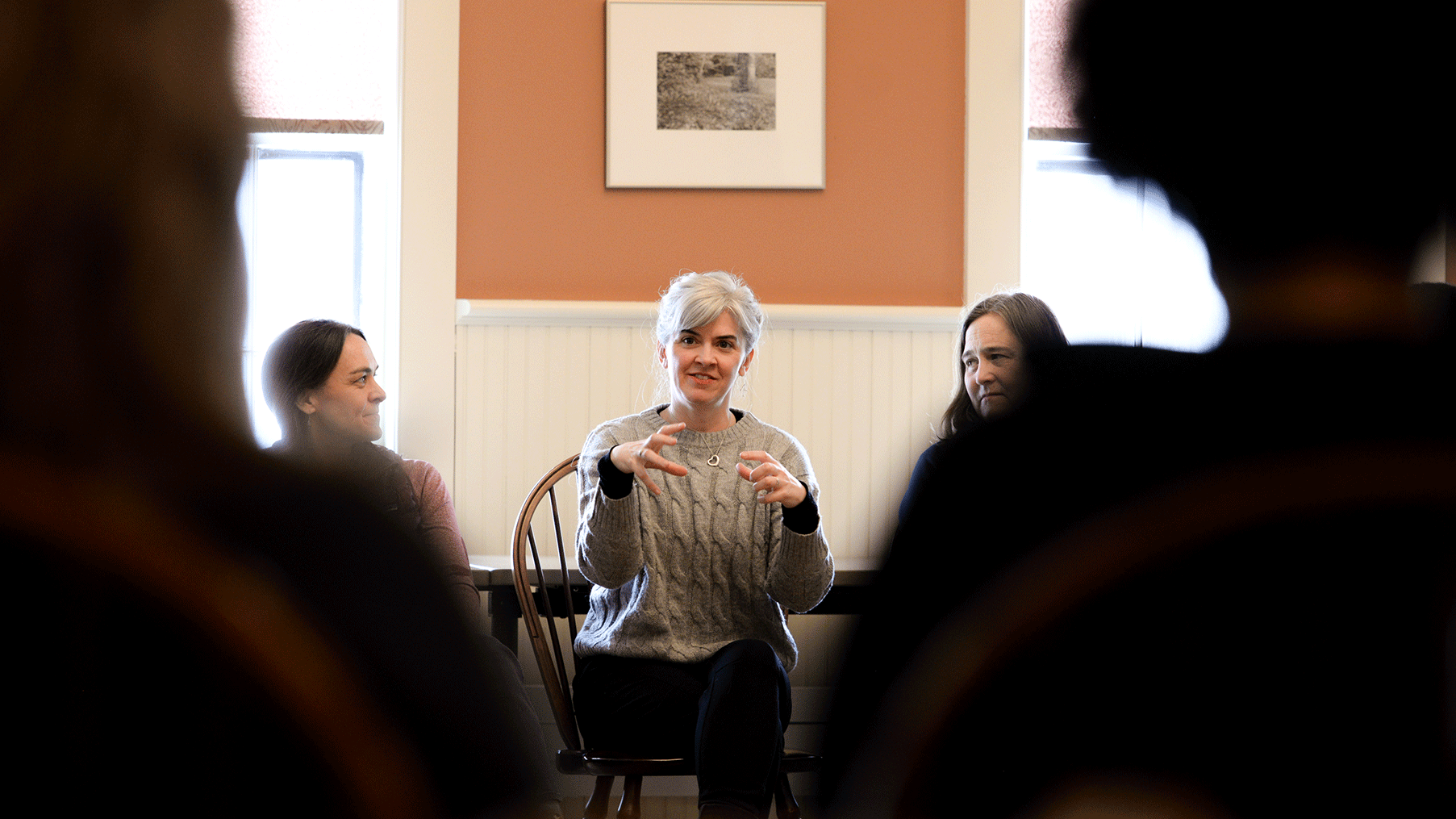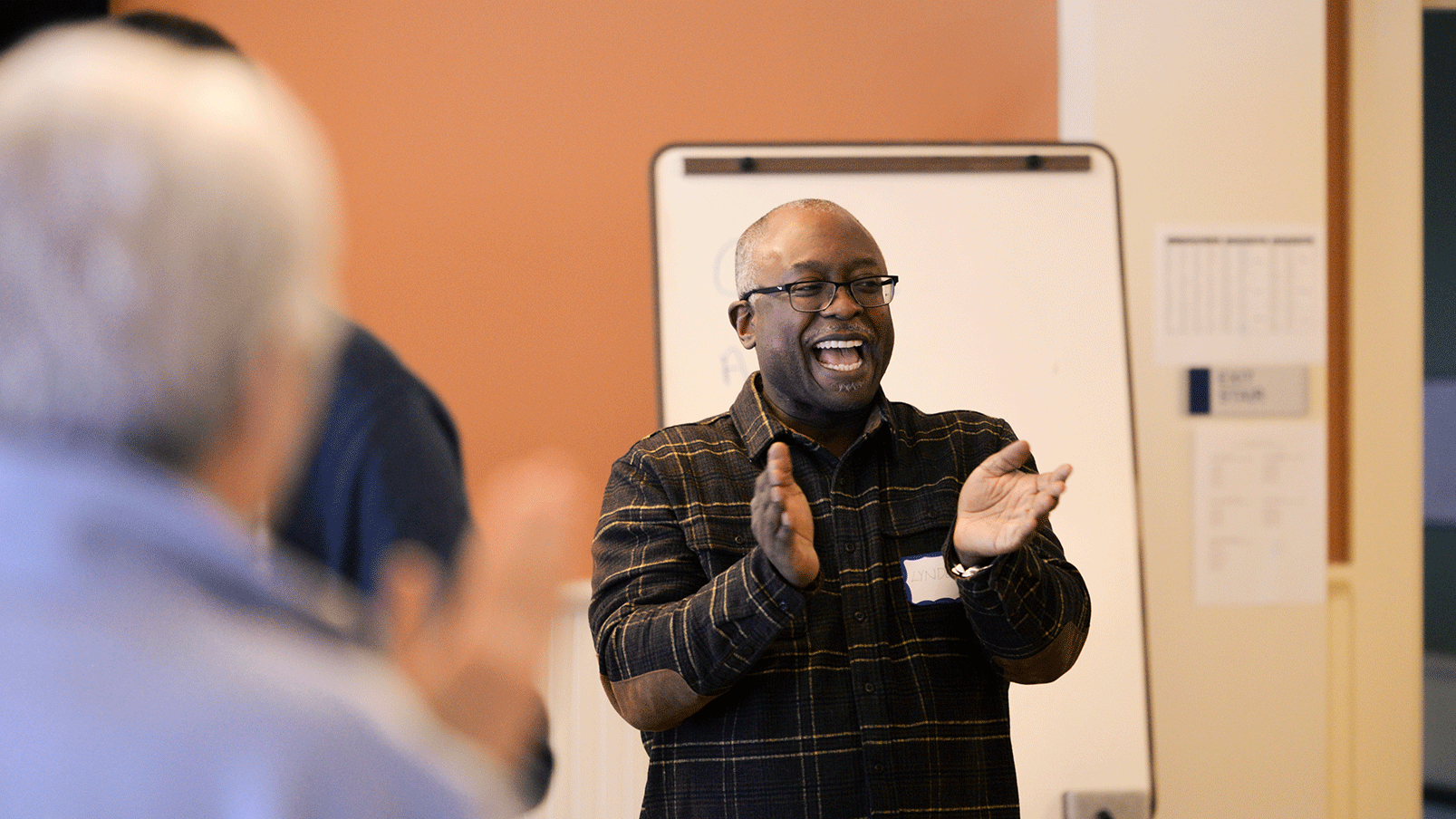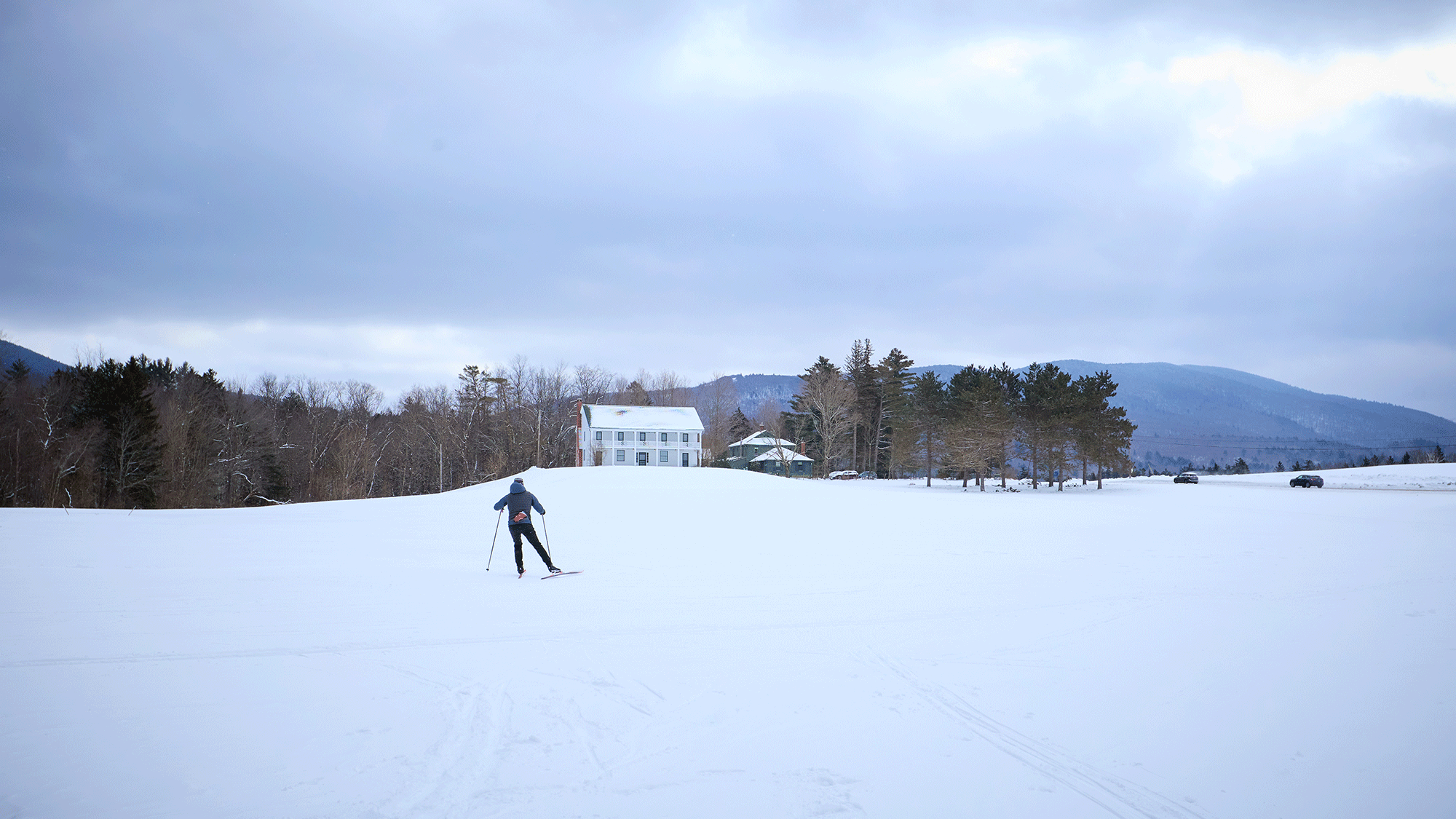…
Gain 13 or 15 hours of professional development in sessions tailored to the talents and needs of teachers.
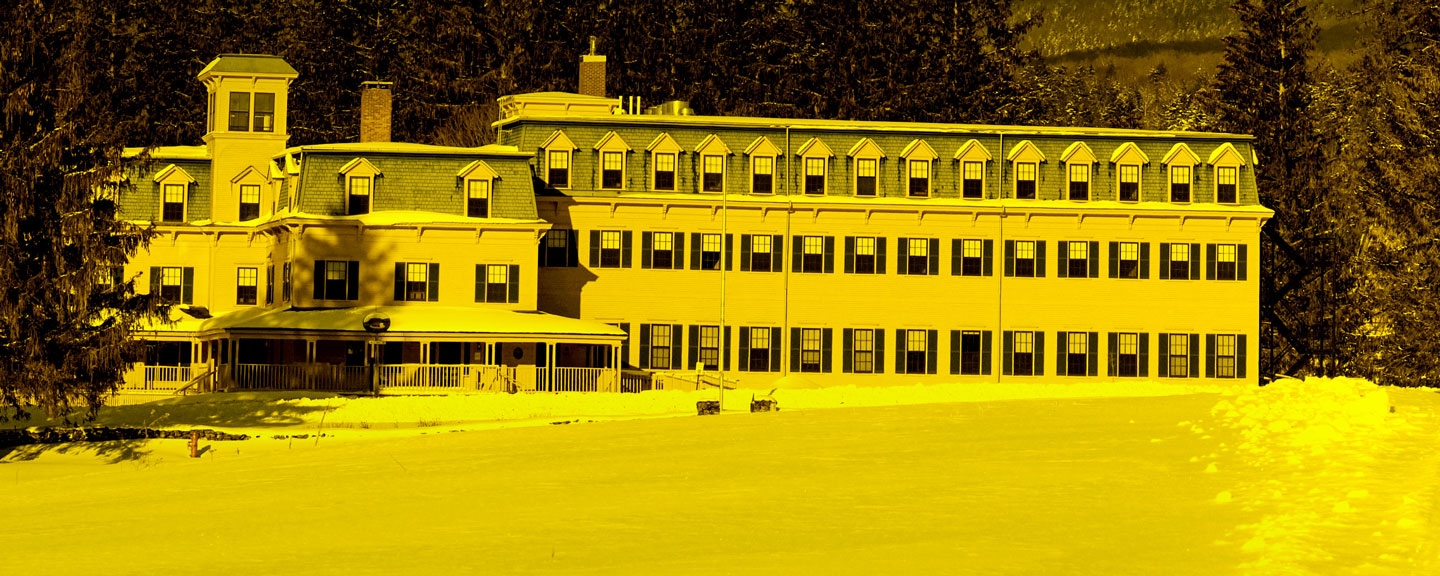
The Winter Institute
Expanding the English Classroom
Bread Loaf Campus, Ripton, Vermont
February 27 - March 1, 2026
We have now reached capacity. If you would like to be added to our Winter Institute waiting list, please email us at blse@middlebury.edu.
The Bread Loaf Winter Institute is a weekend professional development opportunity led by renowned Middlebury Bread Loaf School of English (BLSE) faculty.
Deepen your teaching practice while earning meaningful professional development hours along with other passionate educators. For over a century, BLSE has been offering innovative, graduate-level curricula ideal for teachers of English and language arts. The program’s powerful impact on K–12 classrooms has been bolstered by the Bread Loaf Teacher Network (BLTN), a nationally visible network of teachers and youth who engage imaginative literacy practices to foster social justice.
The 2026 BLSE Winter Institute is being supported by grant funding from the Kathryn Wasserman Davis Collaborative in Conflict Transformation.
Cost:
$1,215 for 13 PD hours or $1,315 for 15 PD hours with on-campus housing
$1,045 for 13 PD or $1,145 for 15 PD hours without housing
-
-
…
Expand your pedagogical toolkit as you engage in dynamic learning experiences. -
…
Become part of a supportive community of new and veteran teachers, Bread Loaf faculty, and actors. -
…
Refresh your professional energies through writing, performance, and reflection.
Winter Institute
Bread Loaf Winter Institute participants earn 13-15 professional development hours through small-group workshops and exercises, offering the opportunity for extended conversations and connection between faculty and both newer and seasoned teachers.
Weekend Offerings
Institute workshops and special sessions will provide participants an opportunity to explore literary texts, periods, and genres as well as the theoretical, pedagogical, historical, and community frames that help us expand our classrooms into the world. Across the weekend, participants will develop an action plan for a school or community project that builds on what they have learned at the Winter Institute.
See a schedule of the Winter Institute events.
Optional Creative Practices Session
Those who wish to earn two additional (for a total of 15) professional development hours can join us for an optional warm-up to the weekend on Friday afternoon, from 1 - 3 pm. This Creative Practices session will offer an opportunity for participants to experiment with creative assignments that cultivate critical thinking. Participants should be prepared to share a creatively based lesson plan or curriculum with the group.
Workshops
Documentary as “Truth-Telling” in an Age of Doubt
Led by James Sanchez
Associate Professor of Writing and Rhetoric, Middlebury College
Recent Pew Polling shows that more Americans trust documentaries to tell them the truth than network news. In this workshop, you will learn how to teach—and think through—documentaries as “truth-telling” artifacts, focusing on how these films employ evidence, emotions, and editing to frame their versions of truth. Using scenes from Alex Gibney’s The Forever Prisoner (2021), Michael Moore’s Bowling for Columbine (2002), and Leni Riefenstahl’s Triumph of the Will (1935), we will explore how documentaries construct their ethos via primary evidence, ethical tiptoeing, and propaganda and how you can use these films to show the slipperiness of truth. Overall, participants will learn the basic language in studying documentaries and will brainstorm ways to introduce these materials to their own classes.
The Body as Ground in an Age of Attention
Led by Rochelle Johnson
Bernie McCain Chair in the Humanities and Professor of Environmental Studies, the College of Idaho
Phones. Tablets. Videogames. “Smart” Watches. AI at every turn. Technology and businesses increasingly compete for human engagement, drawing all of us away from the awareness and mental downtime that curiosity and learning require. As attention becomes an increasingly precious resource, it’s tough to compete—let alone help students get excited to discover the slow joys of creative, imaginative, and analytical curiosity. In this workshop, we discuss the impediments to fostering the pleasures of curiosity, the price our society pays for its waning, and how honing in on sensory experience can provide the necessary ground for student learning.
Creating Writing Centers: Exploring Peer Reading and Writing
Led by David Wandera
Associate Professor of Special Education, Language, and Literacy, The College of New Jersey
As dynamic environments where peer learning, mentorship, and critical engagement intersect across genres, disciplines, and identities, writing centers have the potential to be uniquely collaborative, multimodal spaces and to support a wide range of compositional and academic work. This workshop invites participants to interrogate the pedagogical, theoretical, and practical foundations of writing center work in contemporary and future-facing classrooms. We will explore the roles of peer tutors, the ethics and dynamics of one-on-one writing support, and the complex realities that shape writing center practices today. We will also examine the obstacles that hinder the creation of equitable, school-wide cultures of writing.
Photos, Voices, and Histories: Teaching and Telling Our Stories
Led by Michelle Bachelor Robinson
Professor of English, Director of Comprehensive Writing, Spelman College
PhotoVoice is a research method that uses photography and images as a medium of communication to support participants in enhancing the quality of life in their communities. Oral history is the collection of information through interviews from people who have had personal experiences with particular life events. In this workshop, we will explore strategies for combining the two as a means of expanding learning within the Language Arts classroom, bridging gaps and telling stories across communities. These strategies will translate into activities that will resonate with students and engage them in inquiry, analysis, community building, and expressive writing.
Playing with Form
Led by Emily Bartels
Professor of English, Rutgers University; Dean, BLSE
This workshop will focus on the interpretation and teaching of literary forms. We will think together about how we can make the formal scaffolding of a text jump off the page as an artistic choice that is as meaningful and imaginative as the story it frames. Working with a range of narrative, poetic, and dramatic texts, we will experiment with ways to play with form – through spatial visualization, embodiment, rewriting, word and sound games, and such. Our collective aim will be to turn the cold hard stare of formal “convention” into an inviting expression of unconventional re-creation and to give our students and ourselves access to its ingenuity and relevance.
The Live Art of Interview: Hands-On Storytelling
Led by Tim O’Leary
Director, BLTN What’s the Story? Young Filmmakers’ Social Action Team; Principal, Charlotte Central School
Filming an interview is a live art that asks us to do many things at once — frame a shot, manage sound, follow prepared notes, and listen closely enough to chase the story beneath the words. In this hands-on session, participants will practice that craft while considering the deeper why: how dynamic, high-stakes storytelling work invites students into learning in multiple ways. By blending technical skill with authentic human connection, we’ll explore how the act of filming an interview can engage students’ minds, elevate their voices, and make learning feel vital and meaningful. This approach grows out of two decades of work and eleven years of What’s the Story? The Young Filmmakers’ Social Action Team, a program of the Bread Loaf School of English and the Bread Loaf Teacher Network.
Family Literacy Nights: Literacy and Community
Led by Tom McKenna
Director. Bread Loaf Teacher Network Communications
Across the past thirty years, young people in Lawrence MA, mentored by Bread Loaf graduate and teacher network leader Lou Bernieri, have developed a powerful model of “family literacy nights,” which put literacy at the center of their community as a way to build connection and catalyze social improvement. These literacy nights bring multiple generations together as writers and embrace many different literacies. In this session, we’ll explore the basics of what it means to hold a Family Literacy Night in your school or community. Come prepared to write freely, to share (if you’d like), and to celebrate the unique voices in the room.
Using Theater in the Classroom: Tools for Digging into Text
Led by Angela Brazil
Associate Professor of the Practice, Brown University/Trinity Rep MFA Programs in Acting and Directing; Resident Acting Company Member, Trinity Repertory Company
Theatrical practice can offer students the opportunity to viscerally enter, deeply comprehend, and own a text — and provide a screen-free way to build an engaged classroom community. Using Alice Walker’s short story Everyday Use, this workshop will offer participants the tools to use performance in their own classrooms to excavate a text and to get students up and exploring, engaging physically to create tangible textual connections.
Writing Beyond the Classroom: Community Literacy Narratives
Led by Beverly Moss
Professor of English and Director of Second-Year Writing, The Ohio State University; Director, BLTN
This workshop will focus on designing research and writing projects that ask students to identify, document, and contextualize literacy practices in their community spaces. It will explore ways to engage students in primary and secondary research and will underscore the value of literacies that occur within the community.
Other Sessions
An inaugural discussion and a final reflection will frame our explorations.
Peer breakout groups / writing cafés will allow us to write and reflect together on ways to expand the pedagogical practices and curricula in our classrooms/schools and to address other educational plans or issues. Participants will have an opportunity to write up a working description/outline of their plans during part of the final session.
Performance-based exercises will assist our work and model dynamic classroom practices.
Optional open-mic readings for participants to bring and share their own writing.
Additional Information
- Each participant will take three different workshops: two on classroom practice and one on learning beyond the classroom.
- The institute will be held on the historic Bread Loaf campus in Ripton, Vermont, in the heart of the Green Mountains.
- The event includes opportunities to come early or stay late for cross-country skiing at the Rikert Outdoor Center (on the Bread Loaf campus) and downhill skiing at the Middlebury Snowbowl (minutes away); discounted tickets are available.
Bridge Scholarships
Bread Loaf is pleased to offer Bridge Scholarships for participants of the Winter Institute who enroll for the first time in one of Bread Loaf’s summer residential or online graduate programs. Scholarships provide $2500 to support summer study at Bread Loaf; the application fee will also be waived.












